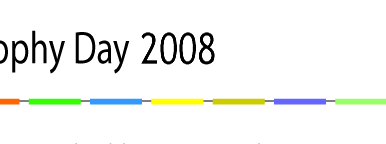



|
|
|
|
|
|

|

|

|
|
|
|
|
|
|
|
|
|
|
|
|
 |
"Building peace in the
minds of men"
The first clause in the preamble to UNESCO's constitution, adopted
on November 16, 1945, states that "since wars begin in the minds of
men, it is in the minds of men that the defences of peace must be
constructed."
According to UNESCO, this can be achieved by advancing knowledge,
which fosters understanding and paves the way to moral and
intellectual solidarity. UNESCO aims "to contribute to peace and
security by promoting collaboration among the nations through
education, science and culture in order to further universal respect
for justice, for the rule of law and for human rights and
fundamental freedoms which are affirmed for the peoples of the
world, without distinction of race, sex, language or religion, by
the Charter of the United Nations."
Since it was founded in 1945, UNESCO has consistently integrated
philosophy in one form or another into its operations. However, the
increasingly urgent need to restore philosophy to its rightful place
in Western society has led UNESCO to expand its action in this area.
In 1995, the international organization established the Philosophy
Forum, in order to unite the philosophies of various nationalities
around a common focus.
Then, to highlight the fact that "the very existence of UNESCO, its
underlying tasks and its ideals of culture and peace are linked to
the universal quest of the philosophical spirit," UNESCO inaugurated
Philosophy Day, indicating that "the idea of universalism should
inform this celebration," which takes place every third Thursday of
November.
In 2002, the first Philosophy Day was presented as a [translation]
"celebration of wisdom and reflection, bringing together people of
all ages around this school of freedom that is philosophy" (1).
In 2003, during the opening address for the second Philosophy Day,
Moufida Goucha spoke of the privilege of listening to those who,
laying claim to the title of "philosopher," have decided
[translation] "to give thought as much space as it needs" (2).
It is therefore UNESCO's aim to place philosophical thought at the
heart of contemporary civilizing action, because [translation]
"[...] Alas, we have also seen this past year, in a climate of
threat, dialogue rejected, dialogue forbidden, while the human
rights situation has become critical, if not very grave, in many
countries" (3).
Philosophy and philosophers are therefore present within UNESCO
House [translation] "as a source of momentum, inspiration and
conviction so that the organization can achieve its goals to the
fullest" (4).
It is therefore clear that there is an overwhelming need to restore
philosophy to its rightful place in Western civilization, in the
hope that it will work quickly as an antidote to the flood of
barbarity around the world and possibly stimulate a rebirth of
humanism.
(1) Report on the first UNESCO Philosophy Day, November 21, 2002
(2 and 3) Moufida Goucha, Chief, Philosophy and Human Sciences
Section. Opening address for the second UNESCO Philosophy Day, 2003
(4) Philosophy at UNESCO: Past and Present - Social and Human
Sciences Program
(5) Patrice Vermeren, La philosophie saisie par l'UNESCO [Philosophy
at UNESCO] - there does not appear to be any specific quote(s) from
this document in the above text
|
FURTHERMORE |
